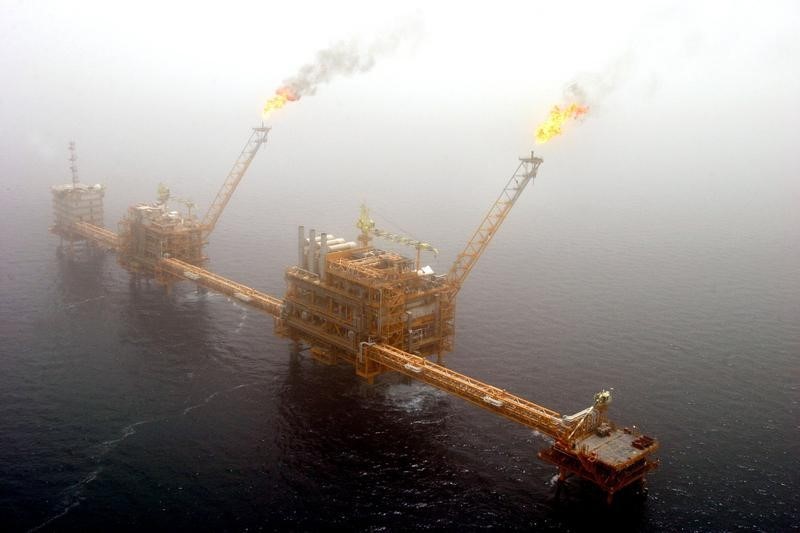BEIJING, May 4 (Reuters) - Oil prices edged up on Friday, extending the previous session's modest gains as looming geopolitical risks from possible new U.S. sanctions against Iran supported the market.
U.S. West Texas Intermediate (WTI) crude futures CLc1 added 3 cents to $68.46 per barrel by 0040 GMT.
Brent crude oil futures LCOc1 were at $73.67 per barrel, up 5 cents, or 0.1 percent, from their last close.
Iran's foreign minister said on Thursday U.S. demands to change its 2015 nuclear agreement with world powers were unacceptable, as a deadline set by President Donald Trump for Europeans to "fix" the deal loomed. prices reflect a premium for Iran uncertainties. Investors are worried about supplies after Iran took a tough stance in its response to the United States," Wang Xiao, Head of Crude Research with Guotai Junan Futures said, adding that prices may fall if expectations of new sanctions ease.
European powers still want to hand Trump a plan to save the Iran nuclear deal next week, but they have also started work on protecting EU-Iranian business ties if the U.S. president makes good on a threat to withdraw, six sources told Reuters. will remain skittish as the May 12 deadline to rectify the deal approaches, ANZ Research said in note.
Iran resumed its role as a major oil exporter in January 2016 when international sanctions against Tehran were lifted in return for curbs on Iran's nuclear program.
Aside from security concerns, growing U.S. crude supplies are capping price gains.
West Texas Intermediate crude for delivery in Midland slid for a fouth day on Thursday to hit their lowest in more than three-and-a-half years. WTI at Midland WTC-WTM traded as much as $14 a barrel below benchmark futures.
Surging production in the Permian basin has continued to outpace pipeline capacity, while local refining issues have exacerbated oversupply in the region, dealers told Reuters. low spot market prices followed U.S. government data that showed a 6.2-million-barrel jump in crude inventories last week.
The United States now produces more crude oil than top exporter Saudi Arabia.
